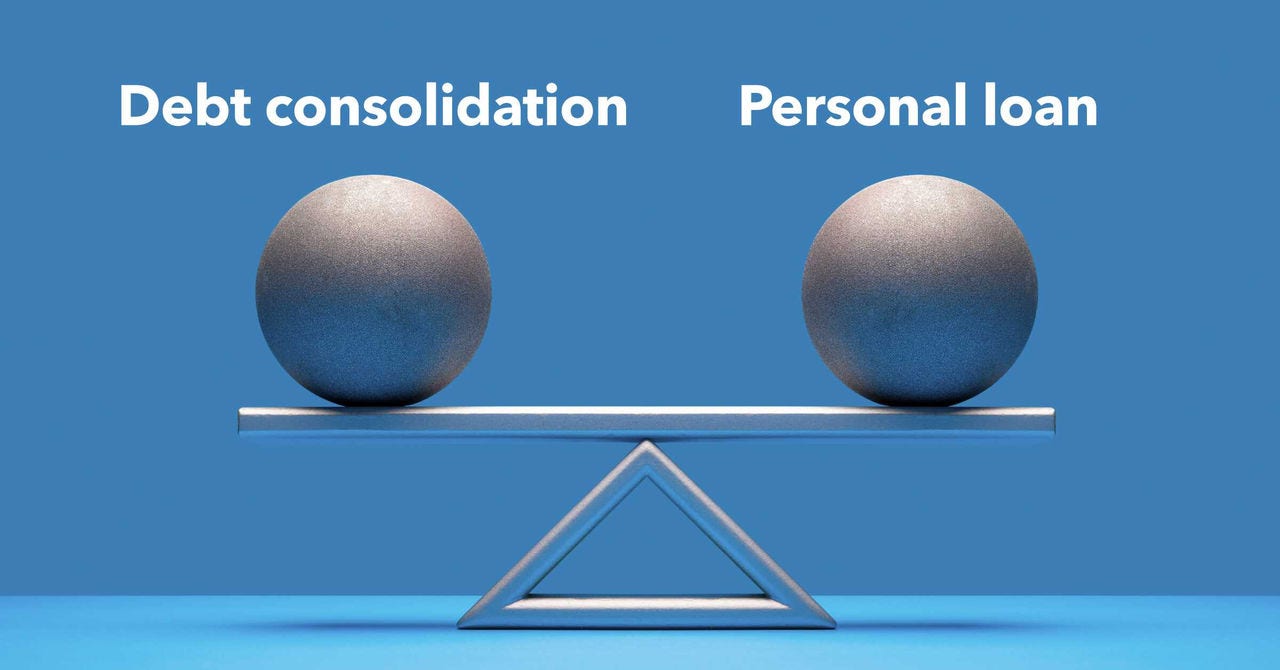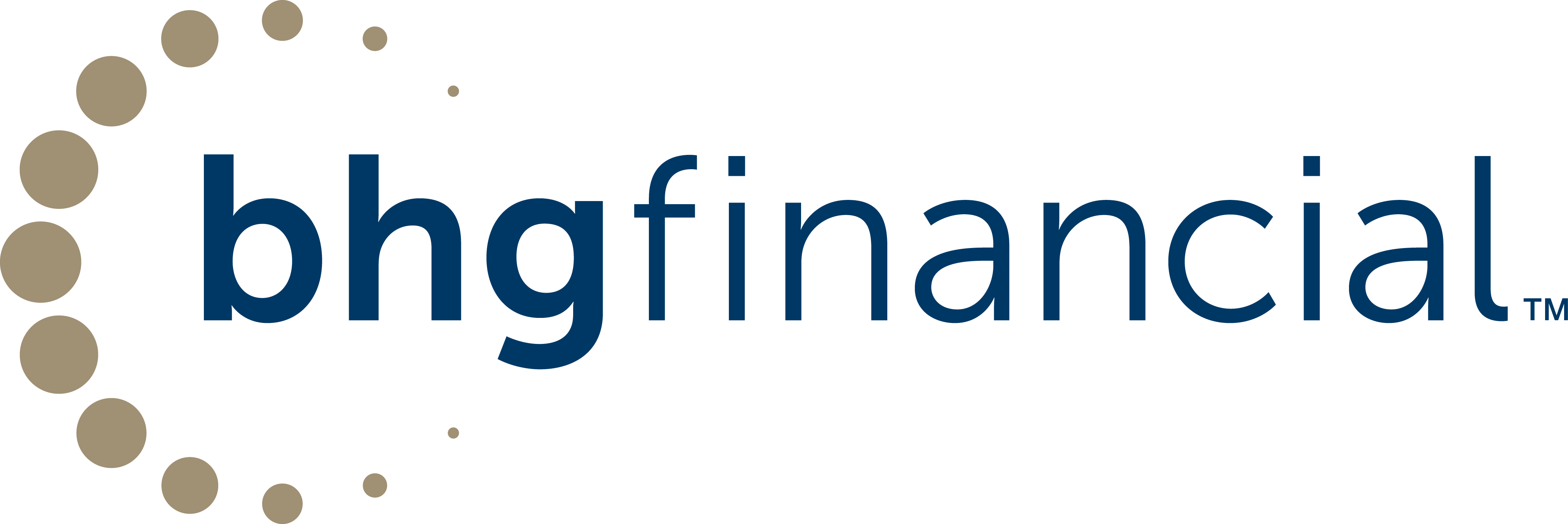Personal Loans
Customized financing to consolidate high-interest debt and unlock financial flexibility.
Business loans
Tailored commercial financing that supports all your business needs to help you grow quickly.
Tailored for entrepreneurs that want to establish additional active and passive income streams.
Customized financing to consolidate high-interest debt or fund major purchases or expenses.
About BHG
Programs
Sign in
Debt Consolidation vs Personal Loan: Which Is Better for You?

Table of Contents
- Is there a difference between a debt consolidation loan and a personal loan?
- Who can qualify for a personal debt consolidation loan?
- What are the costs and fees of a debt consolidation loan?
- How does a debt consolidation loan affect your credit?
- When should you choose a debt consolidation loan over the other debt options?
- How can a debt consolidation loan from BHG Financial help you?
- Debt consolidation vs personal loan FAQ
Debt consolidation loans are personal loans, just structured for a specific goal in mind: to roll multiple debts into one, ideally at a lower rate and with a clearer repayment plan. If you need funds to finance a large expense, a general personal loan may work. If you have a lot of high-interest debt, a debt consolidation loan may help you tackle it faster. The key is matching the right loan to your debt mix, credit profile, and payoff timeline.
Key Considerations
While both debt consolidation loans and personal loans offer a lump sum of money, debt consolidation loans are a type of personal loan that you use to combine multiple debts into one new loan—usually to save money, simplify payments, or both. Lenders may deposit the money into your bank account or pay your creditors directly.
Is there a difference between a debt consolidation loan and a personal loan?
The primary difference lies in their intended use. A debt consolidation loan is a specific type of fixed-rate personal loan designed to combine several existing debts—like credit card balances, medical bills, or other high-interest loans—into a single new loan. The goal is to simplify payments and potentially secure a lower interest rate.
A personal loan, in its broader sense, provides a lump sum of money that can be used for almost any purpose, from home renovations and medical expenses to a significant purchase or debt consolidation.
Who can qualify for a personal debt consolidation loan?
When reviewing applications for a personal loan, lenders look at credit score, debt-to-income ratio, income stability, and sometimes collateral (although most consolidation loans are unsecured). Stronger credit histories and higher income usually unlock larger loan amounts and better rates.
Here are the common debt consolidation eligibility requirements:
- Credit score: A good to excellent credit score (typically 670 and above) significantly improves your chances of approval and can provide more favorable rates. While some lenders may consider lower scores, the terms might be less attractive.
- Debt-to-income (DTI) ratio: Lenders calculate how much of your gross monthly income goes to debt payments. Lower is better, but some lenders are willing to approve borrowers with higher incomes, even if their DTI is elevated. This is because a substantial income can assure lenders that the borrower has enough money to repay the loan.
- Income and cash flow: Lenders want to see a stable and sufficient income to ensure you can comfortably make your monthly loan payments. Higher-income professionals often have an advantage.
- Collateral requirements: Most personal and debt consolidation loans are unsecured, meaning they don't require collateral like a house or car. This makes them more accessible, but also means lenders rely heavily on your creditworthiness.
See your offer † real fast
Just a few easy steps to get prequalified!
† This is not a guaranteed offer of credit and is subject to credit approval.
What are the costs and fees of a debt consolidation loan?
The costs associated with a debt consolidation loan include the personal loan interest rate, repayment terms, and fees. These costs can vary significantly between lenders and depend on your financial profile.
|
Interest |
Annual Percentage Rate (APR): A fixed monthly amount between 7% and 36%, depending on credit profile |
|---|---|
|
Loan terms |
The length of the repayment period (2–10 years) affects the monthly payment amount |
|
Fees |
|
The cost of your debt consolidation loan will also depend on your repayment terms and loan amount. The loan term comparison below shows how monthly costs differ based on your repayment term.
Monthly payment comparison
$40K Balance | 14.63% APR
|
|
Max term |
Monthly |
|---|---|---|
|
Sofi |
84 |
$764 |
|
LightStream |
84 |
$764 |
|
Upstart |
60 |
$944 |
|
Discover |
84 |
$764 |
|
LendingClub |
60 |
$944 |
|
Best Egg |
60 |
$944 |

|
120 |
$636* |
* BHG monthly payment based on BHG’s minimum available APR for a 10-year term, which is 14.63% as of 01/16/26 and includes an origination fee. Your actual loan size, loan term, and monthly payment amount may vary based on your individual credit profile and other information provided in your loan application. Terms subject to credit approval.
Most debt consolidation loans are considered more affordable than high-rate credit cards because the rate is lower and the payments are fixed. Shop around to compare loan offers with several lenders to find the right loan for your budget.
FYI: BHG Financial lets you explore personal loan and debt consolidation loan estimates in minutes. There’s no impact on your credit score to view offers.1
How does a debt consolidation loan affect your credit?
A debt consolidation loan can have both immediate and long-term impacts on your credit score. When you apply for a debt consolidation loan, expect a small, temporary score dip from the hard inquiry and opening a new account. After paying down revolving debt, many borrowers see their credit scores rebound due to reduced utilization and consistent payments on the new loan.
Here are the key credit factors in play:
- Hard inquiry: A hard credit inquiry performed during the application process can lower your score by a few points temporarily.
- Credit utilization: Paying off high-interest credit cards lowers your utilization ratio, often giving your score a boost. The credit utilization ratio is based on revolving credit, like credit cards—personal loans are typically not included in the calculation.
- Credit mix: Adding an installment loan (like a debt consolidation or personal loan) to your credit report can diversify your mix and positively impact your score.
- Payment history: Making on-time payments on the new loan builds positive history, the biggest factor in your credit score. Conversely, missed payments will negatively impact your score.
When should you choose a debt consolidation loan over other debt options?
There are several debt consolidation benefits that make a debt consolidation loan an attractive balance transfer alternative.
If the loan lowers your APR, gives you a payoff schedule that fits your budget, and helps you break free from the revolving balance cycle, it can be a smarter choice than balance transfer credit cards or other loan types—especially if you’re juggling multiple high APR cards or loans and want a single fixed payment.
You might also choose it when you want a flexible—longer or shorter—repayment term. More importantly, these loans can be helpful if you need access to a larger lump sum. Some lenders can only provide loans up to $100,000 and terms up to seven years, while a select few (including BHG Financial) extend much higher for qualified professionals, up to $250,0002 and terms up to 10 years.2,3
How can a debt consolidation loan from BHG Financial help you?
Managing substantial debt requires a lender who understands your unique financial picture. Our personalized lending process includes expert support tailored to your situation.
BHG Financial offers fixed APR personal loans up to $250,000,2 unlocking more opportunities to consolidate significant amounts of debt or handle multiple goals at once. Extended repayment options of up to 10 years2,3 also help lower monthly payments, even for larger loans.
FYI: In 2025, The Wall Street Journal named BHG Financial the best personal loan for large amounts because we offer one of the largest loan amounts in the industry—up to $250,000.2
With BHG, you gain a structured plan, financial clarity, and the support you need to move confidently toward debt freedom. Ready to see what’s possible? Use our quick and easy payment estimator to get your personalized loan offers in just seconds.
See your offer † real fast
Just a few easy steps to get prequalified!
† This is not a guaranteed offer of credit and is subject to credit approval.
Debt consolidation vs personal loan FAQ
Can I use a personal loan for consolidation?
A debt consolidation loan is a type of personal loan designed to help you pay off high-interest debt. One of the main debt consolidation benefits is that the loan typically offers a lower APR than your existing debt, giving you more financial breathing room.
Is a consolidation loan always the cheaper option?
Not always, but often. The aim of a consolidation loan is to secure a lower interest rate than your existing debts, which can reduce total interest paid over time. But even if the total cost ends up being similar (or slightly higher due to fees or a longer term), you may still benefit from lower payments which provide more cash flow on a monthly basis.
What loan terms are ideal for consolidation?
The ideal loan terms for consolidation depend on your financial goals and current budget. Shorter terms (e.g., 2 to 5 years) typically have higher monthly payments but result in lower overall interest paid. Longer terms (e.g., 7 to 10 years) translate to lower monthly payments, but in some cases, may lead to more interest paid over the life of the loan.
Can I switch from one to the other later?
No, you can't "switch" a loan from being a personal loan to a debt consolidation loan (or vice versa) after it's been disbursed. If you initially took out a personal loan for another purpose and now wish to consolidate debt, or if you secured a debt consolidation loan and later find a better offer, you can apply for a new loan to pay off the existing one. However, this involves a new application and credit check. Some loan providers may also have prepayment penalties.
Not all solutions, loan amounts, rates or terms are available in all states.
1 There is no impact on your credit for applying. For personal loans, a complete credit history, which will appear as an inquiry on your credit report, will be performed upon acceptance and funding of the loan and may impact your credit.
2 Terms subject to credit approval upon completion of an application. Loan sizes, interest rates, and loan terms vary based on the applicant's credit profile.
3 Personal Loan Repayment Example: A $60,000 personal loan with a 7-year term and an APR of 17.06% would require 84 monthly payments of $1,191.38.
Consumer loans funded by Pinnacle Bank, a Tennessee bank, or County Bank. Equal Housing Lenders.
For California Residents: BHG Financial loans made or arranged pursuant to California Financing Law license - Number 603G493.